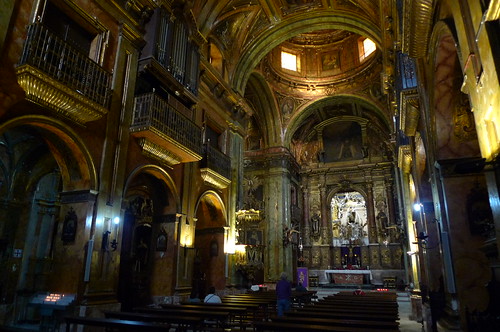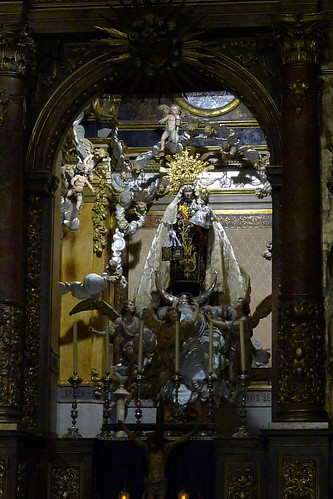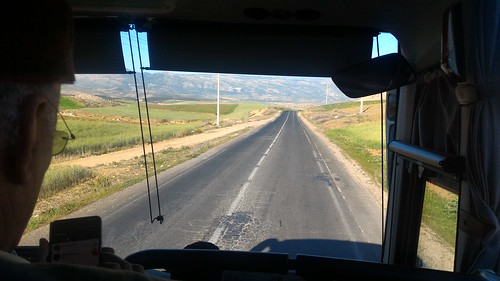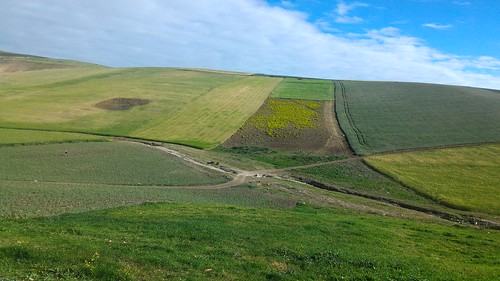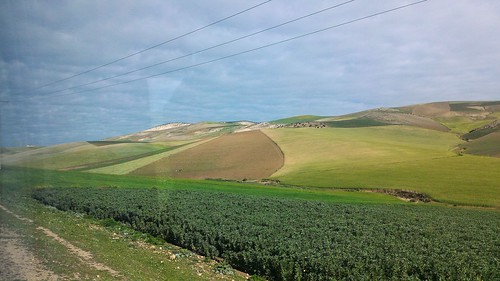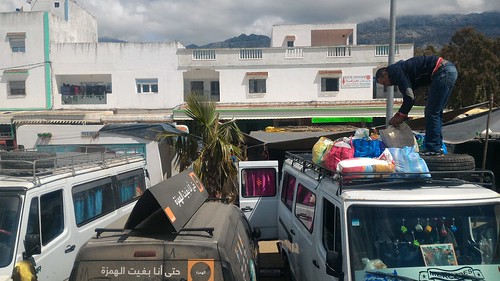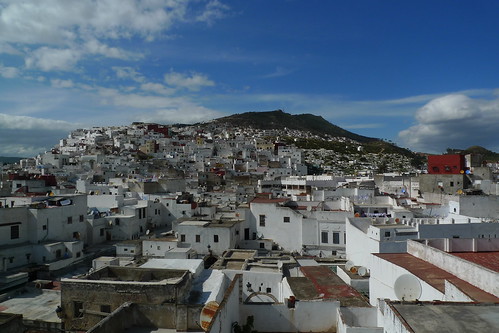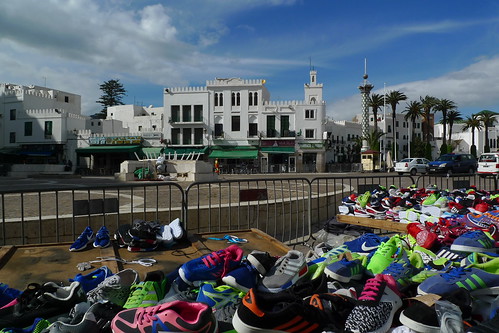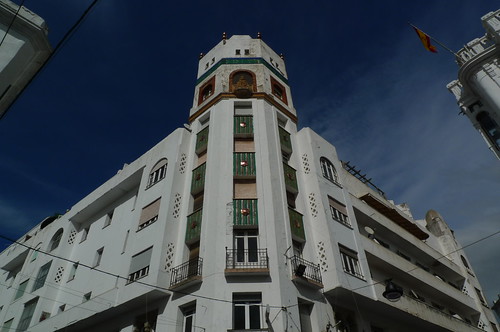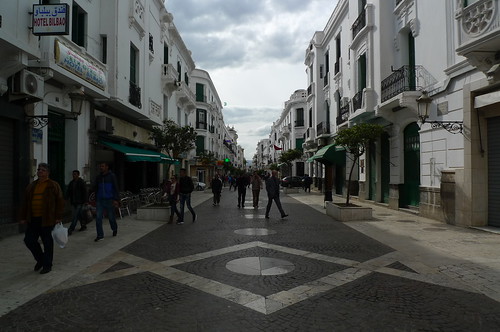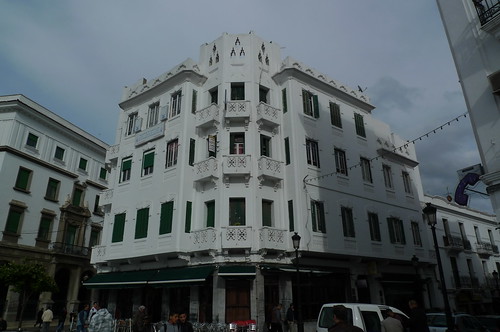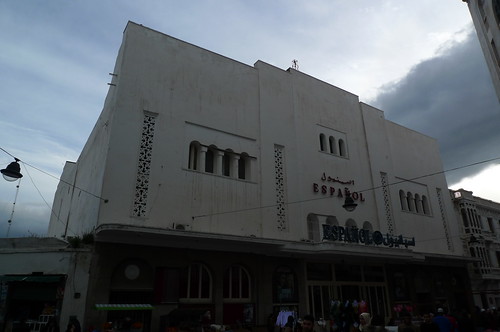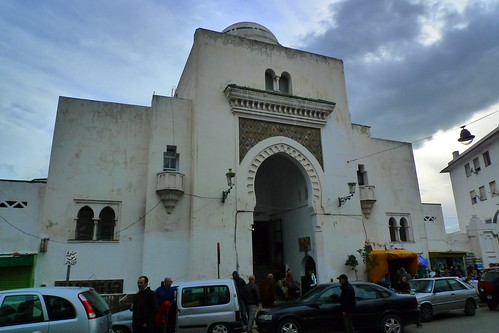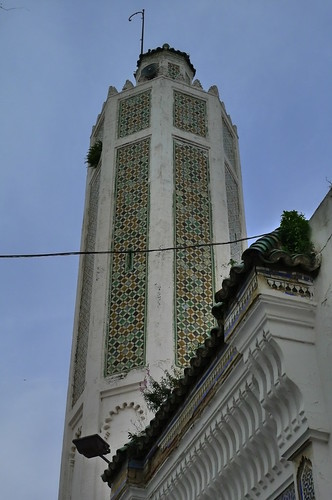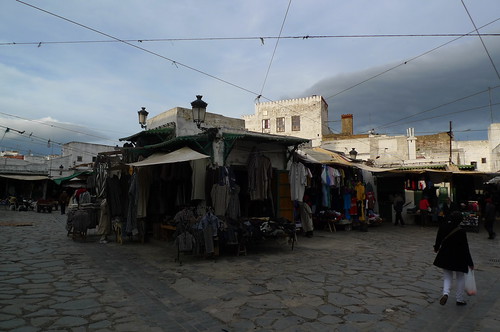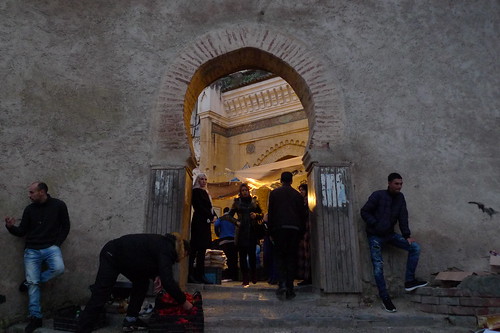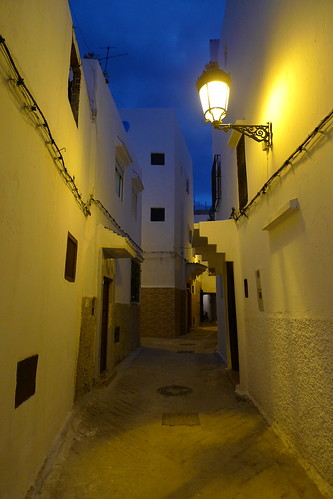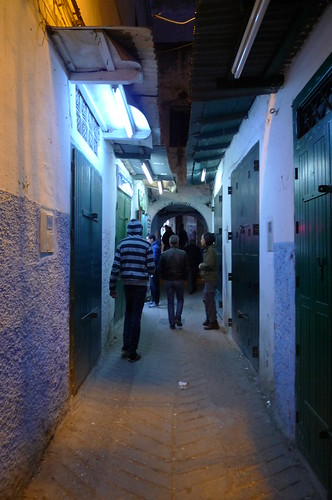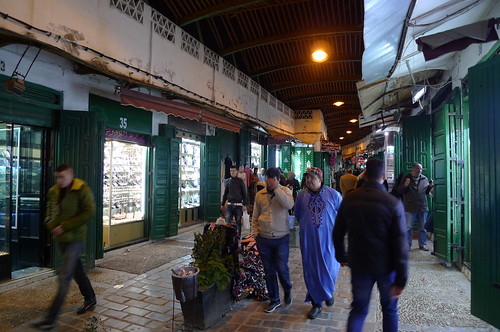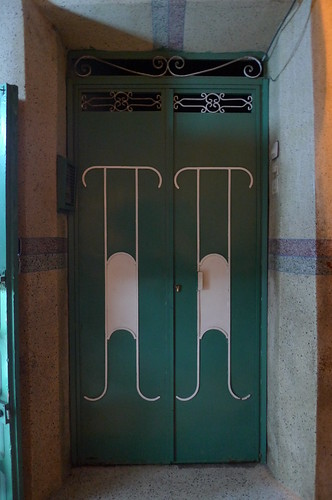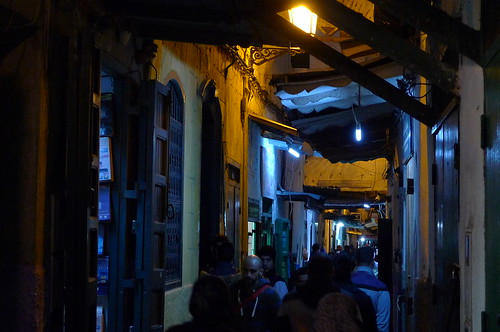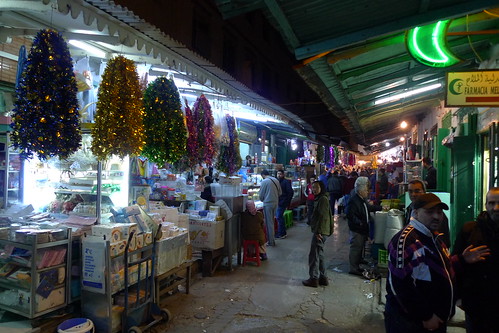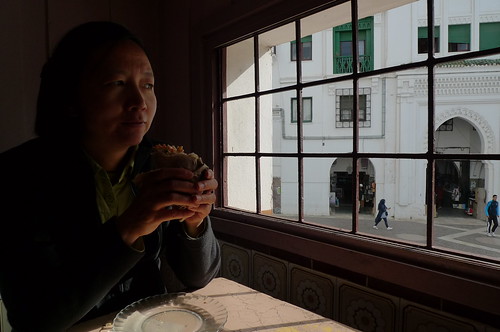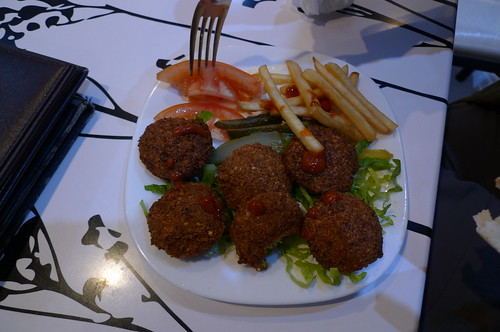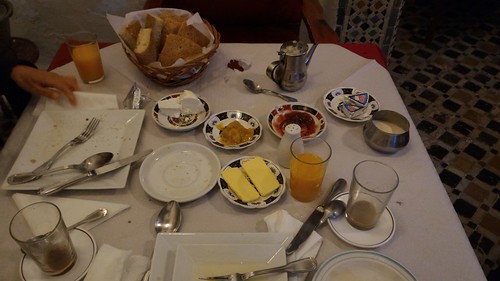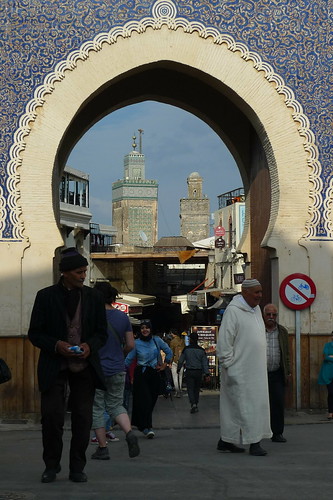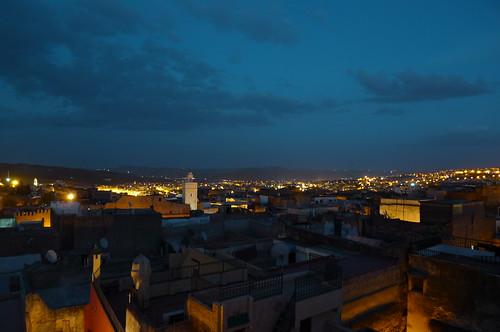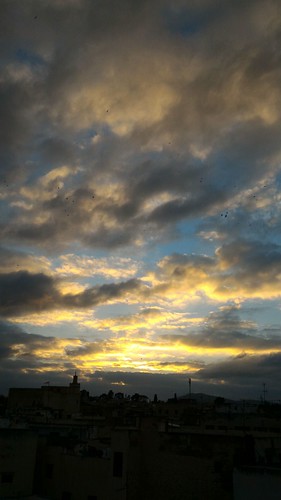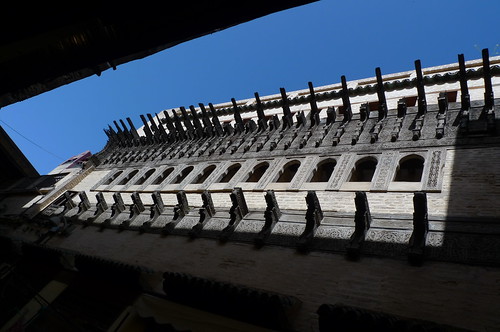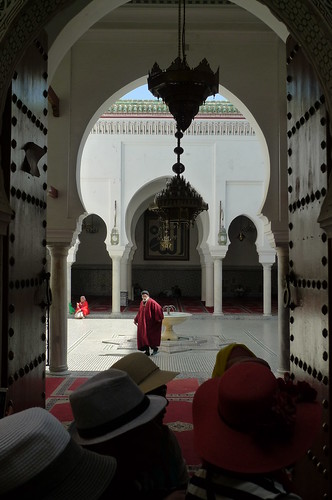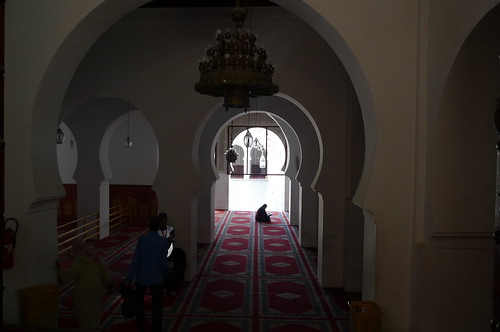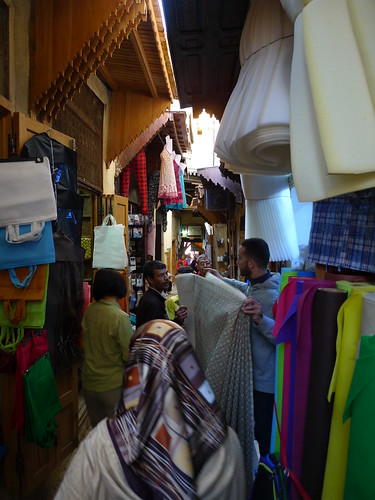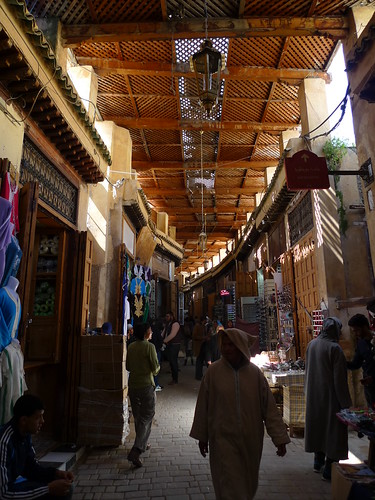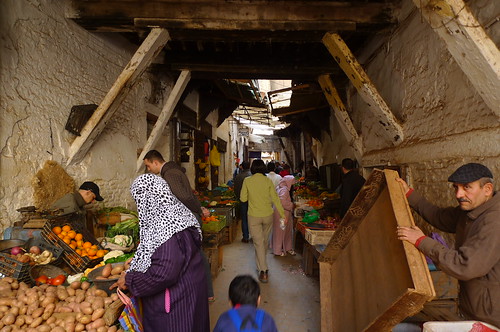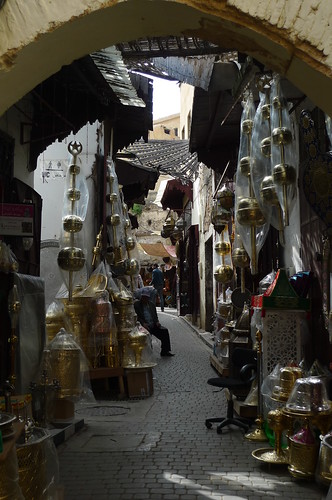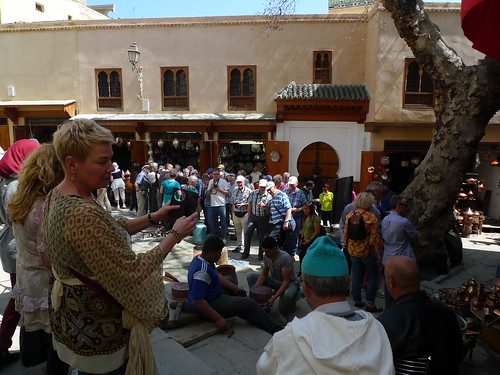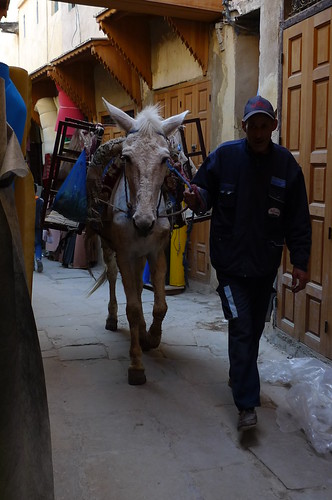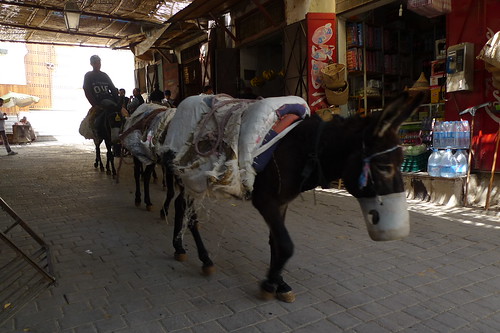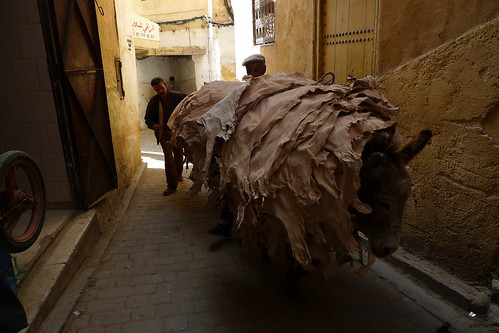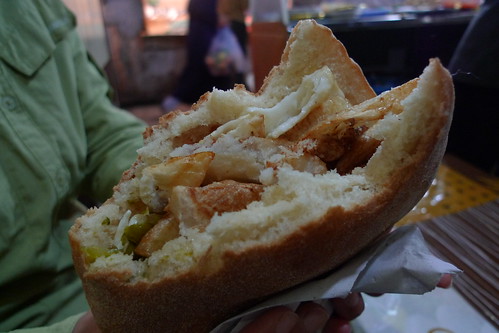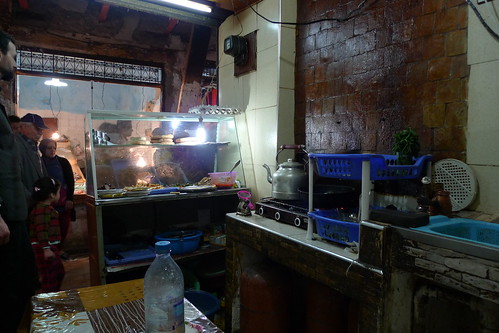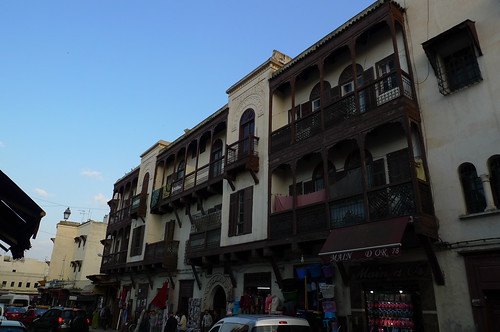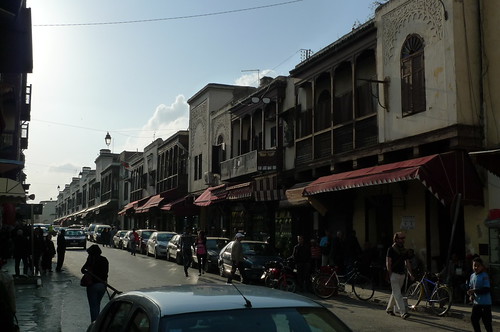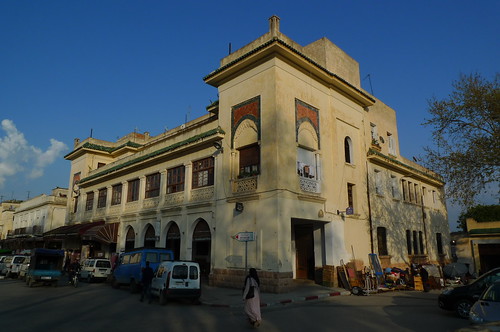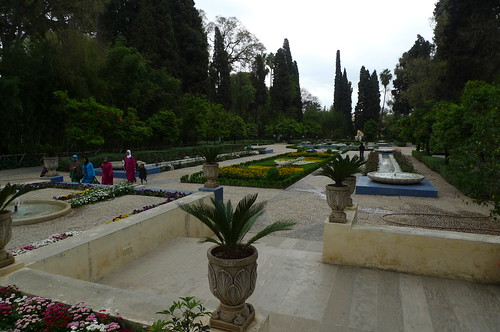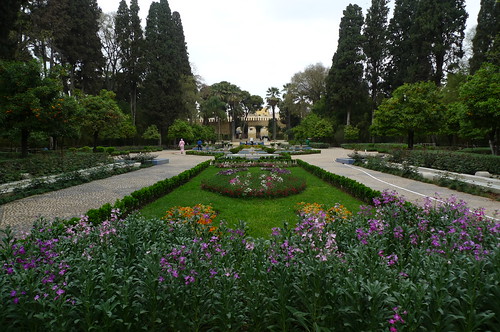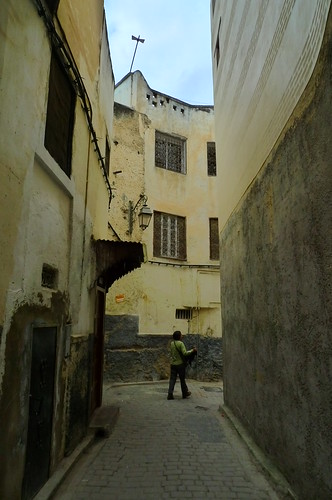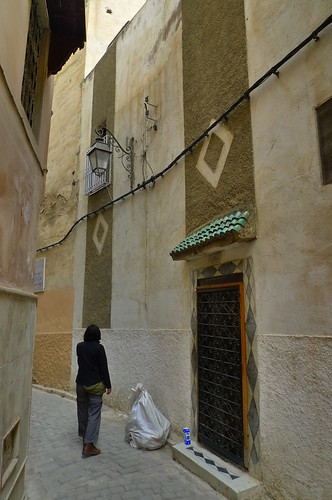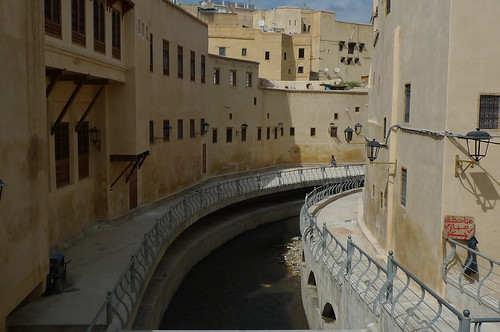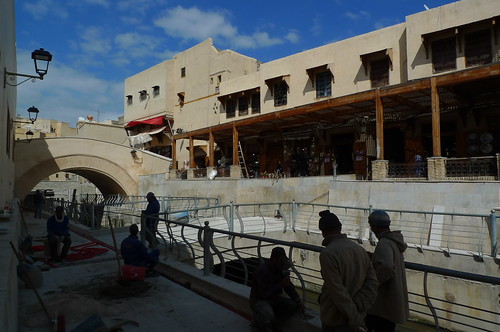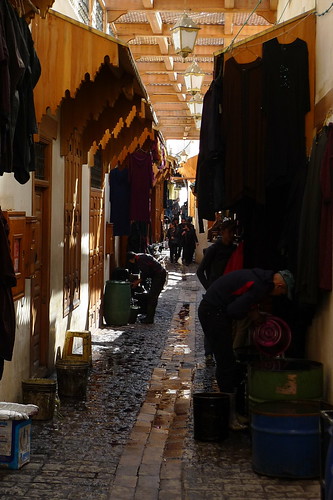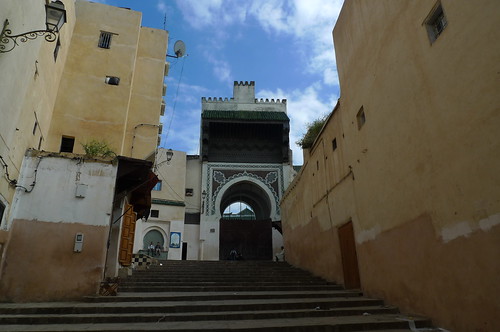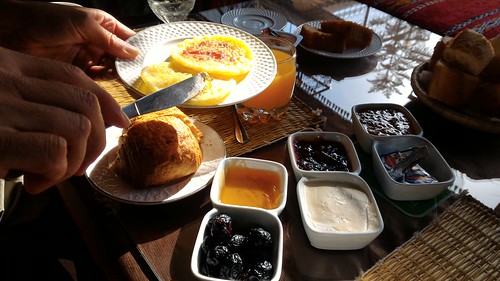1. We couldn't get started earlier because the guesthouse breakfast doesn't start until 8.The breakfast lady didn't show up for work until 8:15. It was worth waiting for since it was the best breakfast we had in all of Morocco.
2. We lose an hour to the time difference between Morocco and Spain.
3. If we don't catch the 14:30 bus in Algeciras, we would have to wait until 19:00. Pressure.
Right after breakfast, our journey began
1. We scooted downhill from the medina to the grand taxi stand.
2. There were four young men waiting already. The two of us squeezed in the front with the driver. It's the old style grand taxi. We immediately took off for Ceuta (the Spanish enclave in North Africa).
3. There were about million vehicles waiting in line to exit Morocco. But our "chauffeur" calmly drove towards the border in the wrong; that is, opposing lane, dropping us off 100 feet from the formalities booth. As pedestrians we didn't have to wait behind anyone except for putting up with the usual deliberate slow downs by border officials. Were they hoping for a bribe?! Not to mention the touts who swarm about, wanting to help you fill in your exit paperwork for a tip.
4. After getting our Morocco exit stamps, we walked - again in the lanes for oncoming traffic - to Ceuta, Spain. I was very happy and relieved to return to Spain.
5. On the Spain side, there were only about half million single file vehicles waiting to cross into Morocco, which means the taxi (or city bus) we need to take us to the ferry dock cannot get to us. We had to walk to the end of the line of vehicles where the taxis can turn around.
6. When the taxi finally got us to the ferry, we missed the 12:00 ferry by a few minutes.
7. The 13:00 ferry left exactly on time and arrived in Algeciras a few minutes after 14:00.
8. Disembarking, we pushed past everyone as discreetly as we could and sprinted for the bus station.
9. This time we made our connection by a few minutes thanks to GPS + offline maps. Once on the bus, we borrowed a phone to let our landlord know that we are coming on the 14:30 bus.
10. When we walked up to the apartment at 16:20, our landlord was waiting for us and showed us to the cutest studio apartment, our home for the next five nights.
11. After our landlord left, we stepped out onto our terrace. In the square below, a group of old flamenco hands were engaged in their art, while the fragrance of orange blossoms wafting up in the breeze....
Jerez, is not a single trick town. It is the center for
1. Flamenco
2. Carthusian horses
3. Sherry
As a result, Jerez is considered a rather prosperous town. At a population of ~200,000 , they have an IKEA!!! We based ourselves in Jerez because of its central location for the day trips we had planned. Unfortunately their tourist office is woefully inept at public transport and the bus station displays schedules for non-existent buses. It was most frustrating as they actually have a wonderful system of public transport. We were not lucky with the weather either....
In spite of everything, we loved Jerez. We are already talking about coming back for Semana Santa, the additional day trips we can make, squirreling away our landlord's email address, and keeping our Transportes de la Bahía de Cádiz tarjeta handy.
Fine views of Gibraltar on the ferry from Ceuta to Algeciras.
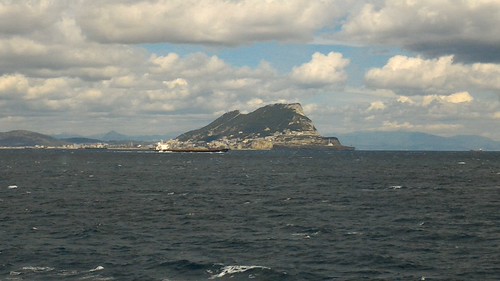
Jerez goes all out for Easter Holy Week. The day we arrived, the viewing stands were going up.
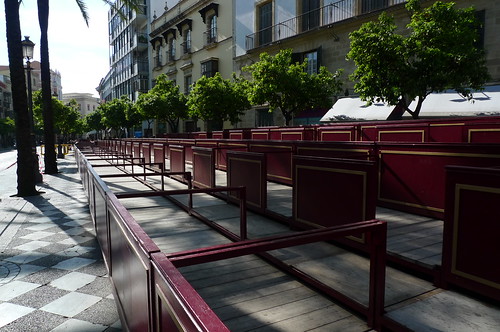
The Jerez Cathedral.
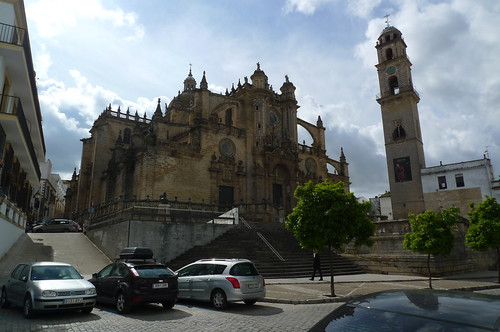
As we had an apartment with a kitchen, we bought almost more fruits and vegetables than we could carry from the very busy Central Market.
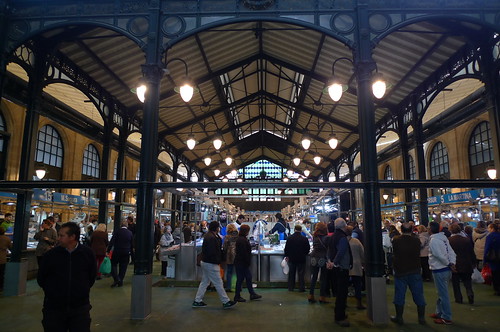
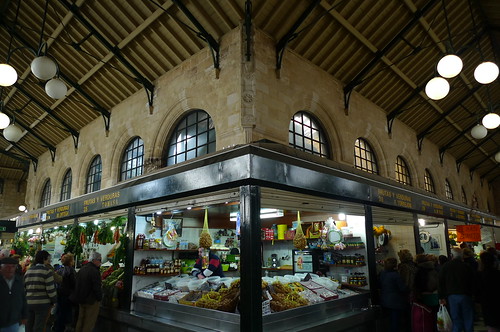
No fish bought of course; although 90% of the market is selling fish.
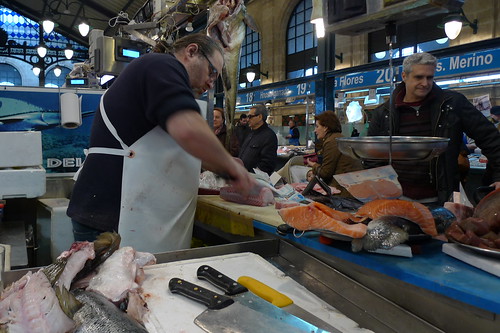
Walking out to the Cartuja Monastery, we spotted some Carthusian horses (we think).
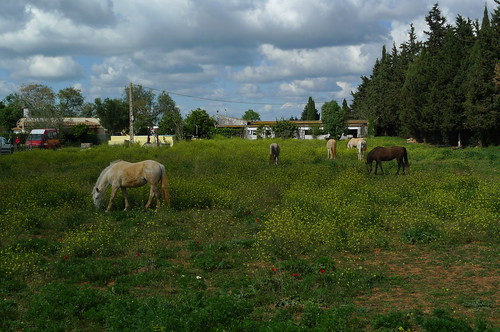
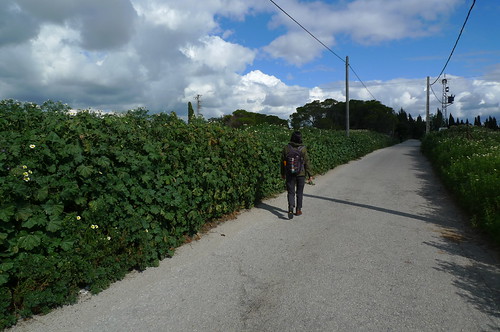
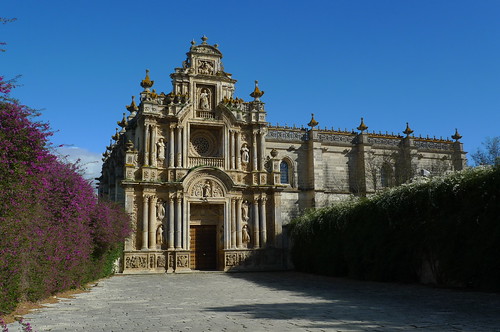
Around Jerez it's always wheat fields in the foreground and windmills on the horizon.
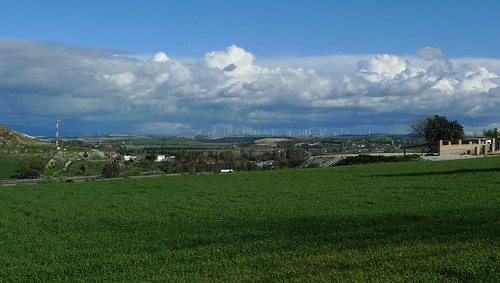
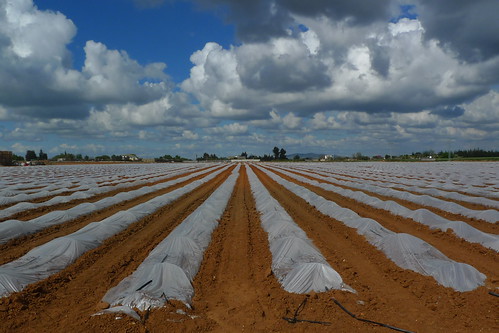
Jerez is famous for its sherry wine ("sherry" is an English corruption of "jerez"); thus we bought a bottle of Tio Pepe sherry from the local Carrefour and had a drink before dinner with olives, cheese, and roasted peppers.
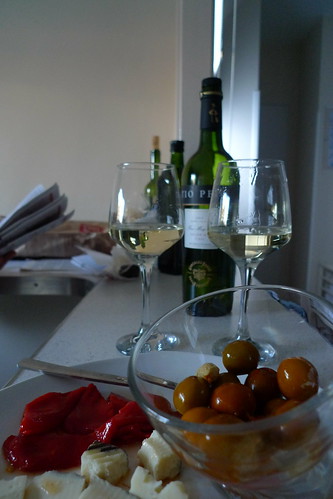
Checkout line at our local Carrefour.
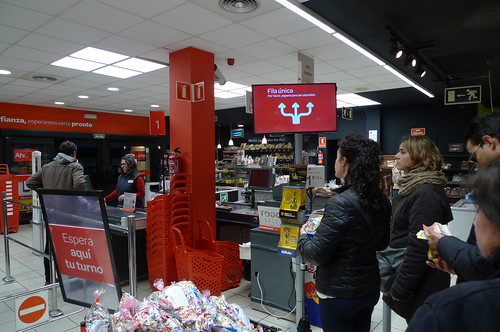
Using the Jerez Bus Station was frustrating as the Arrivals+Departures board was perpetually off and its clock eternally 2:17
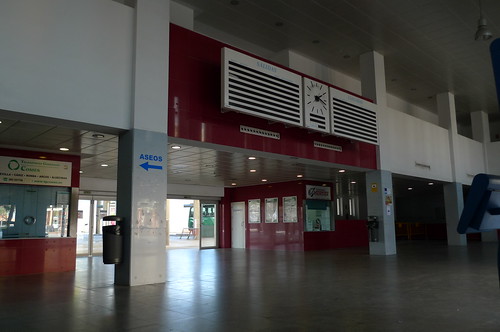
However, the adjacent Train Station was forever beautiful. ;-)
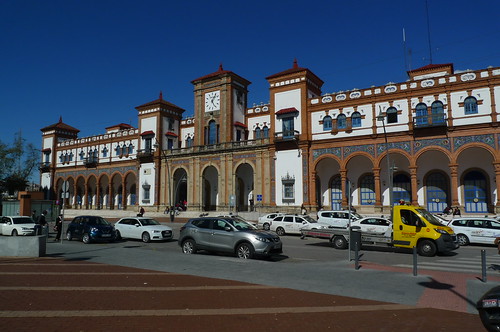
Our apartment had a terrace which we only used twice - the weather was terrible.
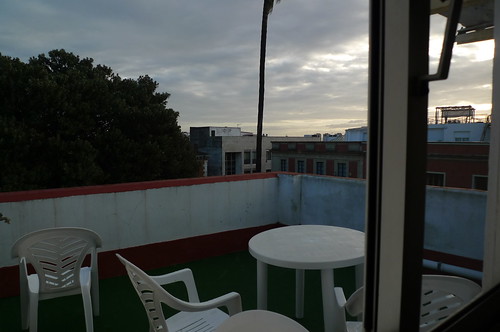
Old Town Jerez was pretty cool and we enjoyed strolling around in the evenings when it did not rain.
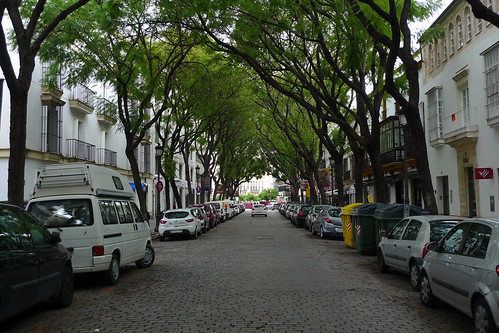
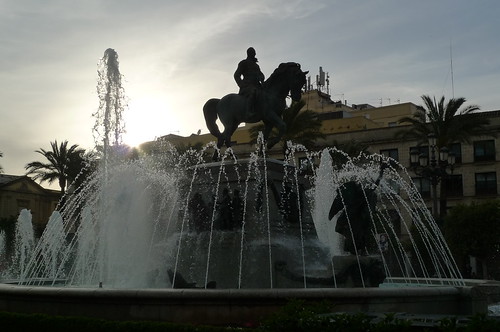
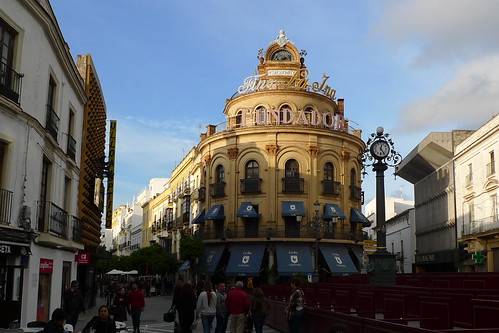
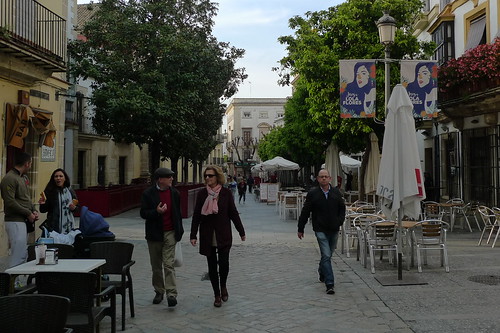
On Monday evening, many of the churches were open and "showing" their Holy Week readiness.
